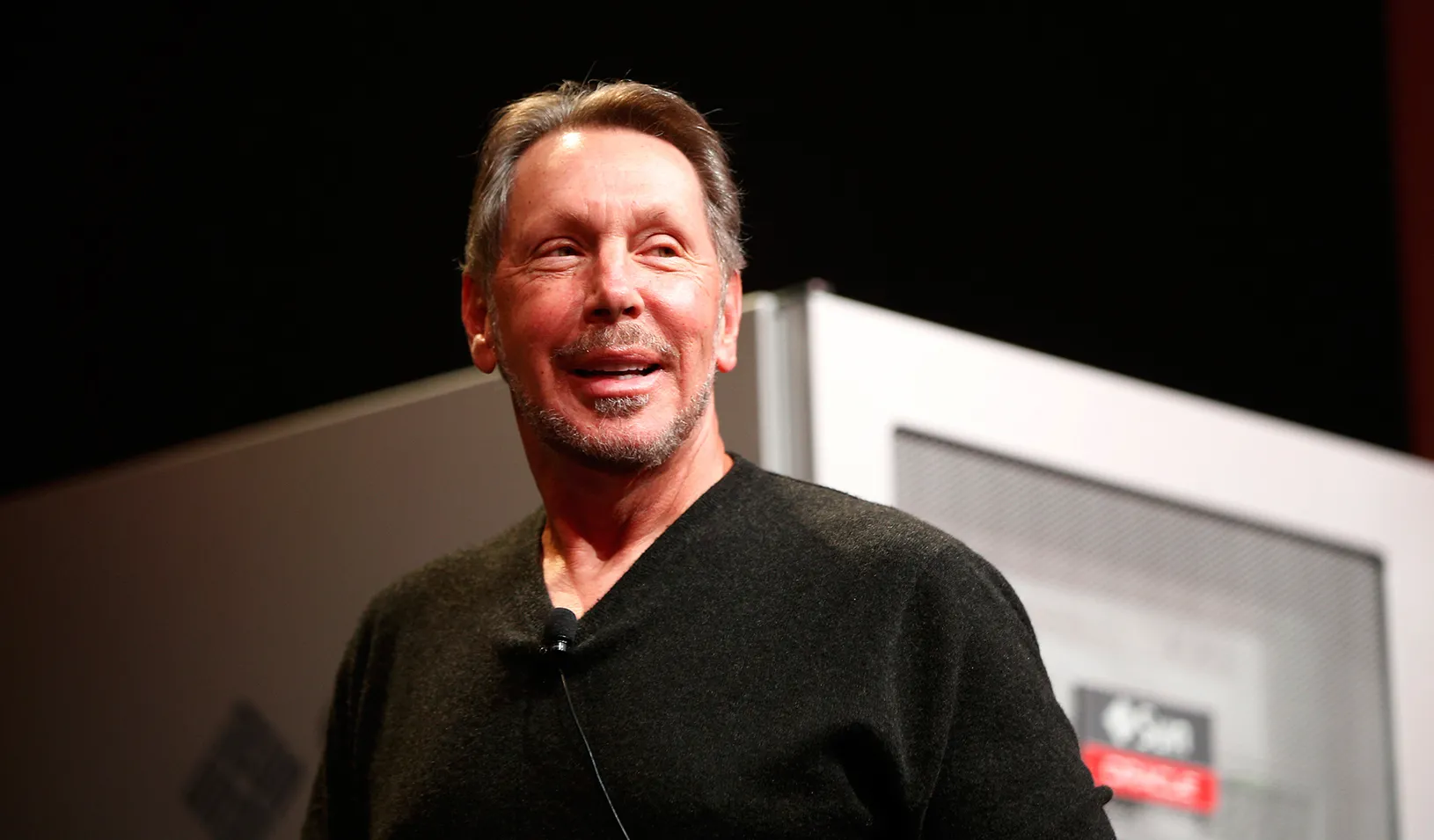July 14, 2014
| by Adrienne Sanders
Larry Ellison, one of America’s top-paid CEOs | Associated Press photo by Paul Sakuma
Larry Ellison towered again among the top ranks of the highest-paid CEOs in 2013 with total compensation of $78 million. He is in plentiful company. Sixty-five chief executives took home annual pay of more than $20 million last year. What prompts boards of directors to grant such astounding sums? And why would individuals, who by any objective measure have all their needs satisfied, seek such exaggerated amounts?
New research by Stanford management professor Charles A. O’Reilly shows that it is the persuasive personality and aggressive “me first” attitude embodied by narcissistic CEOs that helps them land bloated pay packages. Specifically, narcissistic CEOs are paid more than their non-narcissistic (and merely self-confident) peers. There is also a larger gap between narcissists’ compensation and that of their top management teams than is found with CEOs who do not display the trait. The longer the narcissists have held the top post, the bigger the differential, according to the study published in The Leadership Quarterly earlier this year.
Narcissism is a personality type characterized by dominance, self-confidence, a sense of entitlement, grandiosity, and low empathy. Narcissists naturally emerge as leaders because they embody prototypical leadership qualities such as energy, self-assuredness, and charisma.
“They don’t really care what other people think, and depending on the nature of the narcissist, they are impulsive and manipulative,” says O’Reilly, whose research examines grandiose narcissism, a form associated with high extraversion and low agreeableness.
The study that O’Reilly coauthored with UC Berkeley doctoral student Bernadette Doerr, Santa Clara University professor David F. Caldwell and UC Berkeley professor Jennifer A. Chatman, surveyed employees in 32 large publicly traded technology companies to identify the narcissistic CEOs among them. Employees filled out personality assessments about their CEOs, which included rating the chiefs’ degree of narcissistic qualities such as “self-centered,” “arrogant,” and “conceited.”
They also completed a Ten Item Personality Inventory (TIPI) about their CEOs. In addition, researchers scanned CEOs’ shareholder letters and earnings call transcripts for an abundance of self-referential pronouns such as “I.” Narcissists use first person pronouns and personal pronouns more often than their non-narcissistic peers, prior research shows.
The scholars chose to focus on the quickly changing, high-stakes technology industry, in part because it prizes individuals who are convinced of their own vision and who are willing to take risks. They figured correctly that it would bolster narcissists with large pay contracts. “In places like Silicon Valley, where grandiosity is rewarded, we almost select for these people,” says O’Reilly. “We want people who want to remake the world in their images.”
Narcissistic CEOs secure these pay contracts, at least in part, by winning over board members. The study found that companies with highly narcissistic top bosses do not necessarily perform better than those led by less narcissistic chiefs.
Narcissistic CEO/founders obtained even larger compensation than their narcissistic peers who didn’t found their companies. O’Reilly says this is logical given the extreme self-confidence and persistence of founders, who have to raise capital and overcome obstacles in order to survive.
“From the board member’s perspective, you’ve got this person who is quite charming, charismatic, self-confident, visionary, action-oriented, able to make hard decisions (which means the person doesn’t have a lot of empathy) and the board says, ‘This is a great leader,’” O’Reilly says, adding that board members might not necessarily see their self-serving, superficial qualities.
The paper notes that the CEO is often involved in hiring a compensation consultant who sets the CEO’s pay. Thus, it is in the consultant’s interest to make sure the chief is well paid. Unencumbered by a sense of fairness toward others, narcissists believe they are special and will often manipulate others in order to get large pay contracts they believe is their due.
The study also found that the longer the narcissistic chief executive was in charge, the farther ahead of his team his pay progressed, because he had recurring exchanges with the board, seeking more money for himself and less for his team.
A large pay divide between the CEO and other top executives can chip away at company morale, leading to higher employee turnover and lower satisfaction, according to O’Reilly’s research. Given the dissatisfaction and protests this pay gap can breed among employees, the researchers questioned how narcissistic CEOs could occupy the big office for so long. While some employees leave on their own accord, the paper supposes that CEOs may “eliminate those who might challenge them or fail to acknowledge their brilliance.” The same lack of empathy that makes narcissists less likeable to underlings also helps these CEOs fire them with little guilt.
To avoid getting the heave-ho, people who work for narcissists must “constantly flatter them. You can’t challenge them. Be prepared for them to take credit for your ideas. That’s the name of the game,” says O’Reilly referring to advice in Michael Maccoby’s book The Productive Narcissist: The Promise and Peril of Visionary Leadership.
O’Reilly’s team posited that because pay packages for senior executives are shaped by peer-firm comparison data, narcissistic CEOs’ ever-increasing pay demands contribute to the destructive upward spiral of broader CEO compensation.
Charles O’Reilly is the Frank E. Buck Professor of Management at Stanford GSB and the director of the Leading Change and Organizational Renewal Executive Program.
For media inquiries, visit the Newsroom.






